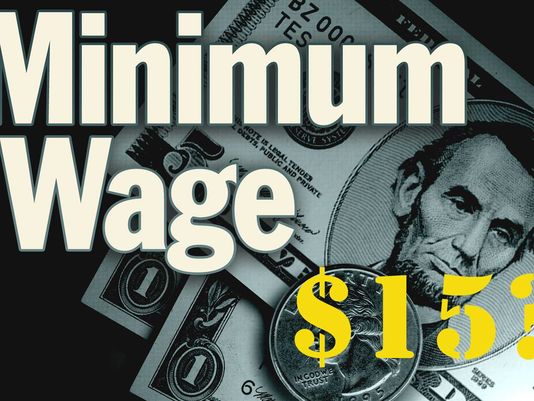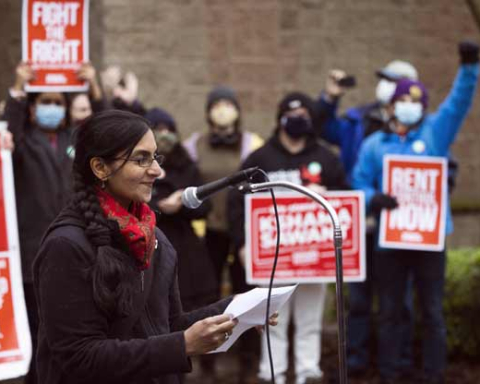
On Monday, with a 9-0 vote, the Seattle Council voted to pass and increase the minimum wage to $15 per hour. This makes the minimum wage in Seattle the highest in the nation. The wage increase will be slowly phased into Seattle over the next several years. Smaller businesses will have even more time to phase in the increase. The mandate mentions that large enterprises, those with over 500 employees, implement a $15 minimum wage by either 2017 or 2018. Conversely, smaller businesses, those with fewer than 500 employees, are required to meet the $15 minimum wage standard by either 2019 or 2021.
The City of Seattle obviously supports the new law because the tax revenue is massive. They essentially double what they bring in now per individual minimum wage paycheck. It is an easy way to steal more taxes from the people.
So where do we go with this news? I guess businesses no longer need to hire high school kids or dropouts…. when they can get college grads for $15 per hour. Hell, educated kids from Tacoma would probably even commute to Seattle for this kind of money. It’s a smart move by the Seattle Government to grab additional taxes. As a new hire, you don’t really need to go to college anymore or need a skillset. With that in mind, the government doesn’t really care just as long as they are automatically taking from your paycheck. No need to go to college anymore and you can be lazy. You’ll get paid the same so who cares? You might as well get a $15 – $20 per hour job and figure out the college thing later.
Why stop at $15 lets make it $20 per hour which is 40K per year. If we are going to go big – why not go really big? Seattle leadership knows to slowly rob people of their paychecks so the pain is less noticeable. Since people are making more now, let’s continue to raise the already high rents in the neighborhoods. Landlords are going to love this! People are making more now, so it only makes sense to me. Since people are making more, the City can charge a little extra on parking tickets or add a few more traffic light cameras. As a blue state, the democrats are pros at robbing people of their money and taxes.
All of this is an excuse to take more money from your paycheck and at the same time create an excuse to raise the prices of other things around the city. It’s all about getting money back into the system and nothing to do with you. It appears to me that Seattle leadership continues to run the city into the ground.
If we want to make a change, there should be a $15 MAXIMUM wage for Congress and the Seattle Council members. One step forward and two steps back with this requirement.

What are the disadvantages of increasing the minimum wage?
Raising the minimum wage is a topic of heavily debated between the lawmakers and businesses. While increasing the minimum wage aims to provide workers with a livable income, it also poses several potential disadvantages and unintended consequences. Here are some commonly cited drawbacks of a higher minimum wage:
1. Increased Costs for Businesses:
- Higher Operating Costs: Small businesses, in particular, may struggle with the increased costs associated with higher wages.
- Inflation: Some businesses might raise their prices to compensate for increased labor costs, contributing to inflationary pressures.
2. Unemployment and Reduced Hiring:
- Job Loss: Some employers might reduce staff numbers to maintain profitability, leading to unemployment.
- Hiring Freeze: Businesses might decide to pause hiring, affecting job market fluidity.
- Automation and Outsourcing: Employers may opt for automation or move jobs overseas where labor is cheaper, reducing local employment opportunities.
3. Reduced Hours and Benefits:
- Employers might cut workers’ hours or reduce non-wage benefits such as healthcare and paid time off to offset increased wage costs.
4. Impact on Less-Skilled Workers:
- Employers may become more selective, preferring employees with more skills and experience, leaving less-skilled or inexperienced workers struggling to find employment.
- This could particularly affect young people and those with lower educational attainment, potentially exacerbating inequality.
5. Potential Decline in Business Formation and Survival:
- Increased costs might deter entrepreneurs from starting new businesses, impacting innovation and economic diversity.
- Existing businesses, especially small and medium-sized enterprises (SMEs), might face sustainability challenges, leading to business closures.
6. Distortion of Labor Market:
- It could distort wage structures, causing dissatisfaction among more skilled or experienced workers earning similar wages to less-skilled workers.
- Some argue that a higher minimum wage might discourage workers from acquiring additional skills or education, impacting productivity in the long run.
7. Impact on Competitive Advantage:
- Countries with lower minimum wages might have a competitive advantage in labor-intensive industries, potentially leading to a decline in such industries in countries with higher minimum wages.
8. Mismatch between Local Economies:
- A uniform minimum wage might not consider the varying living costs between regions, leading to imbalances and inefficiencies.
Balancing Perspectives:
While the aforementioned points illustrate the potential disadvantages of a higher minimum wage, balancing them against the advantages, such as poverty reduction, increased worker productivity, and stimulation of economic growth through increased consumer spending is essential. The overall impact of raising the minimum wage often depends on how well the policy is designed and implemented, considering the specific economic context and conditions of each locality or country.
You can make your own decision on this topic. One thing we do know living in Seattle, is that leadership will continue to raise taxes and request more money from you.








